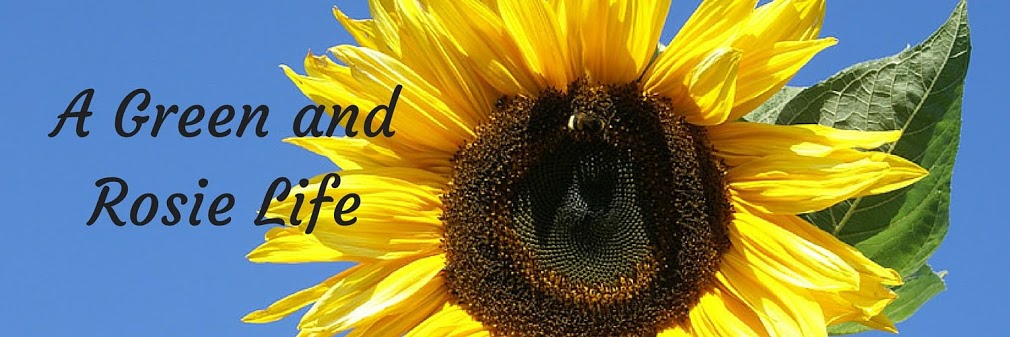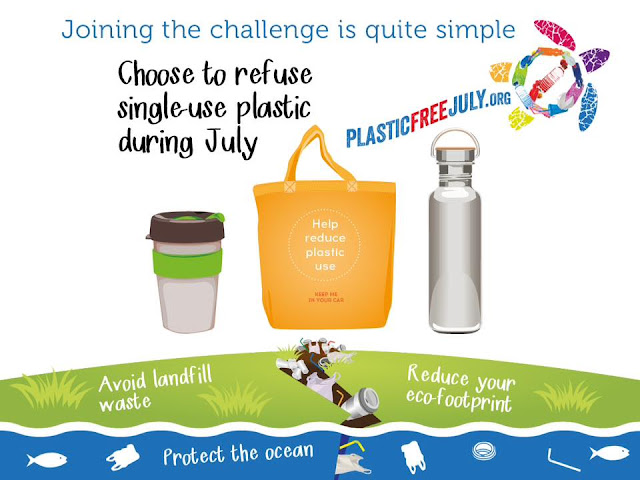Observations on #PlasticFreeJuly
Some of the slightly depressing observations
Some people are horrified at the idea of giving up straws or using a glass/washable one. I read a blog or Facebook status (and I am really sorry but I cannot find where now) that had comments from some people who were horrified at using glass washable straws and felt we would all fall victim to bacterial infections from them.
Teabags got talked about a lot this month and much to my surprise (and I am guessing most the people too), many of them contain plastic, either to seal them or in the bag fibre itself. I contacted various supermarkets and manufacturers with 4 coming back to me:
- Twinings said that their pyramid and ordinary teabags did contain plastic to seal them but that their teabags with a string and tag did not.
- Clipper Teas said their teabags did but they were always on the look out for non plastic alternatives
- Morrisons and Sainburys both said their tea bags did.
Want to know more about plastic in your teabags? Have a watch of this video. And if you are wondering what to do about this it's simple - buy a tea pot and loose leaf tea!
And talking of tweeting large supermarkets all, except one of them, ignored my tweets asking what plans they had to reduce the amount of plastic that was in their store products. Sainburys did reply but simply with a generic tweet sending me to the environmental policies page of their website which contained no real information about reducing plastic.
On a smaller level I came across a company selling scone making kits. On the face of it this sounds like a lovely idea to get people into baking ... until you see how much packaging is involved and how much of it is plastic. They also ignored my tweets and Facebook comments asking what plans they had to reduce the amount of plastic
Staying with this scone making kit I also realised how much people do not see plastic. The kit came to my attention via a Facebook group for holiday home owners that I am on and so I asked if the lady posting it was worried about how much plastic it contained. She replied "What plastic - do you mean the jam pots?" She had not see the plastic wrapped plastic spatula nor the plastic wrapped ingredients and sweets.
Some of the more uplifting observations
#PlasticFreeJuly got a feature on Radio 4's You and Yours on Friday. It contained both positive and negative viewpoints and I will write a separate blog post about it soon.
At times it may seem that we can do nothing to stop plastic invading every corner of our lives and so polluting the entire planet. But I read an article about changing perceptions that really gives hope. The research indicates that only 10% of a population needs to change their attitude for the entire population to start to do the same. So if 10% of us actively reject plastic there is a good chance we can all make a difference.
So this sort of headline is very positive:
Amid rising concerns about pollution nine out of 10 people want supermarkets to introduce a “plastic-free aisle” according to this poll in The Independent. The public want change.
Furthermore I was chatting to a friend yesterday and he was adamant that things would soon start to change simply because plastic is made from fossil fuels which are a non renewable resource and plastic itself is not generally a reusable product. As stocks of fossil fuels diminish and become too expensive to extract manufacturers will have to find alternatives. In France the bags supermarkets supply for your loose fresh produce are now all made from biodegradable cornstarch so changes are starting. Change will have to happen but we did both agree did not know how quickly it would happen but we hoped it would be sooner rather than later.
Final conclusions
#PlasticFreeJuly is about raising awareness of single use plastic, helping to change attitudes and showing them what they can do to reduce how much plastic is in their lives. The 2 BIG attitudes we do need to change are cost and convenience. Plastic is, at the moment, cheap to produce and light so it keeps down transport costs and protects products from damage which in turn help to keep down the price of goods. As consumers we need to accept that maybe our shopping will cost us a bit more if we are to see less plastic. Plastic also makes things very convenient and easy to buy ... so maybe we need to accept that without so much plastuic we may have to make a few more things ourselves - how about trying to make some bread rather than buying it plastic wrapped. Oh and don;t forget to tell manufactures and supermarkets what you are rejecting as our combined voice will start to have an impact.
There is often a solution to excess plastic and whilst I very much doubt anyone could truly go plastic free at this point in time there are many ways we can all reduce plastic. We just have to think outside the box and/or use the power of the internet to search for inspiration.
How was your #PlasticFreeJuly - did you manage to ditch some plastic and will you carry on through August and beyond?




There is too much plastic in the world
ReplyDeleteUnfortunately, cornstarch plastic is no solution--it doesn't actually biodegrade unless composted properly, it is often made of genetically-modified corn sprayed with pesticides, and using corn for this purpose raises the price of corn for human and animal food.
ReplyDeleteI didn't do anything for July specifically, but I am always trying to use less plastic!
I knew about them not degrading unless composted properly and the use of GM cord and pesticides does not surprise me. I use my own reusable produce bags and if anyone questions why I don't use the corn ones I can now explain that not only are they still a wasteful resource (use once and throw away) but they carry a heavy GM and pesticide load too. Thank you.
DeleteI have several infusers I use for my herbal teas. I don't use straws. There is so much hidden in the manufacture of household items. You never know what is in your food or utensils.
ReplyDeleteThat is very concerning that tea bags contain plastic! I do have a loose leaf tea pot but I don't use it as often as I should. I really should make the effort to use it more. A lot of teabags are also dipped in bleach to make them whiter! Yet another reason to switch to loose leaf tea. #GoingGreenLinky
ReplyDeleteYep, loose tea for me too from now on. Yuck! I keep trying to use less plastic, but usually can't shop till late at night when the farm shop is closed, so end up at the supermarket again. I definitely need to start 'seeing' plastic more and actively avoiding it better.
ReplyDeleteWhile I think it is good to raise awareness via a month as you point out it should not be constrained to just one month but the year. I like the sound of trying out loose tea. #GoingGreen
ReplyDeleteIt is very interesting that there is SO much plastic in so many things we least suspect, or we don't realise how much. I had no idea about the tea bags!
ReplyDeleteI think the problem is that plastic is so cheap and easy to make into things and there is so much of it used that getting that reduced is a long and hard job. What gets my goat is companies that produce "eco friendly" products like skin care or other things but their stuff still comes in plastic containers! Plastic bags are a huge bug bear of mine too and plastic wrap on foods in supermarkets!
I must stop ranting now. Thanks for sharing your thoughts and all that info. #goinggreen